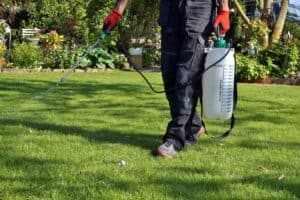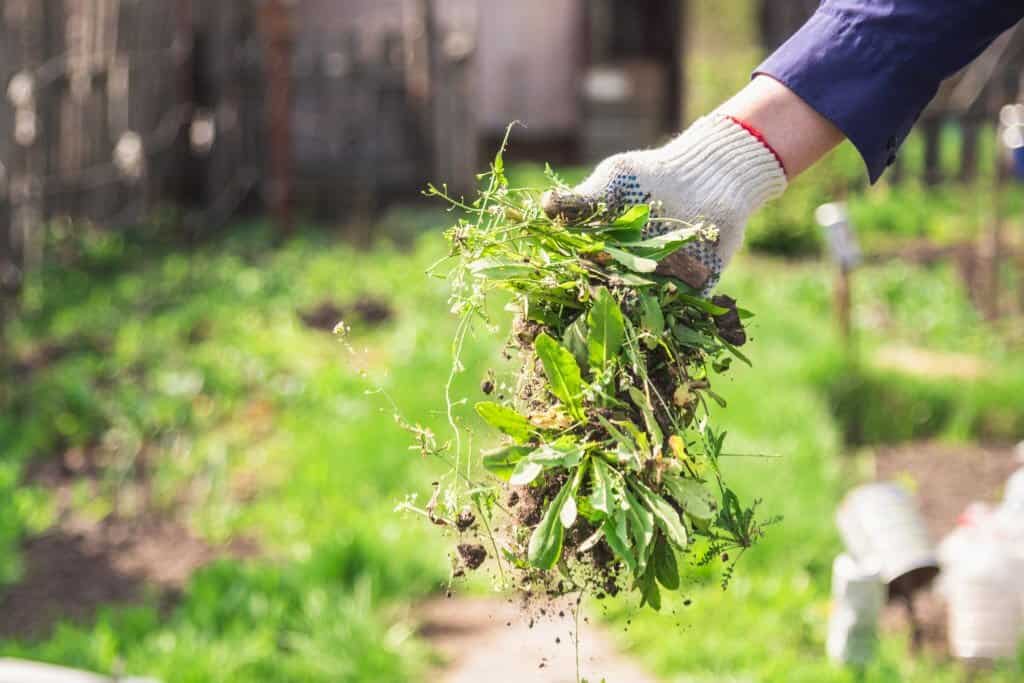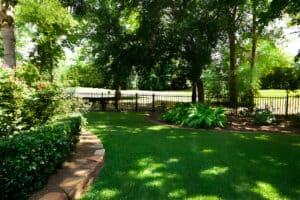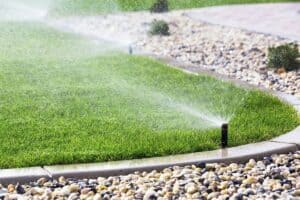The Little Rock area has been fortunate to experience an unusually wet and fairly mild summer, which is great for our plants (and our water bills). But, as is often the case, the bad comes with the good: Weeds! If not kept in check, these pesky plants can very quickly get out of control, taking over lawns and garden beds.


Central Arkansas is home to many different types of weeds. Some common summer annual weeds (plants that germinate in spring) are crabgrass, goosegrass, and knotweed, while annual bluegrass, henbit, and chickweed are common winter annuals (plants that germinate in fall). Common summer perennials (plants that return year after year) include nutsedge and dallisgrass. Common winter perennials are dandelions and wild garlic.
How to Get Rid of Weeds
Let’s be realistic: A 100 percent weed-free lawn is not really a practical or attainable goal. One point to consider when thinking about your weed removal is how weed-free does your lawn really need to be? After all, weeds bother some people more than others. Take a look at your lawn from the street. If its appearance is tolerable, don’t waste your time going after those last few weeds. Excessive herbicide use intended to eliminate a few stubborn weeds usually does more harm than good.
If you really want to get after them, though, there are a couple of ways to get rid of them. If you have a smaller number of weeds, mechanical weed control methods such as digging and pulling can be helpful. Mowing is another method of mechanical weed control. But, if you’re dealing with a large number of weeds, you might need to bring in the big guns.
- Pre-emergent Herbicides – Pre-emergent herbicides are foundational to a turf grass weed management program. Pre-emergent herbicides are applied to your lawn before the weed seeds germinate. After being activated by rainfall or irrigation, these herbicides form an herbicide barrier at or just below the soil surface. When the roots or shoots of germinating seeds come into contact with the herbicide barrier, their growth is hindered.
- Post-Emergent Herbicides – These herbicides kill existing weeds that are actively growing. They come in two basic forms: contact and systemic. Contact herbicides kill only the part of the plant they touch. Most act quickly and work best against annual weeds. Systemic herbicides, like RoundUp, work inside the plant, killing the whole thing. They’re more effective than contact herbicides on perennial weeds, though repeat treatments might be needed. While they’re very powerful, keep in mind that systemic herbicides will kill any plant they come in contact with (not just the weeds), so it’s best to apply these judiciously.
If you decide you don’t want to mess with weeds, give the pros at Little Rock Lawns a call! We’ll do the dirty work to maintain and improve your lawn’s beauty with a full range of professional lawn services. Contact us now for a free consultation!






